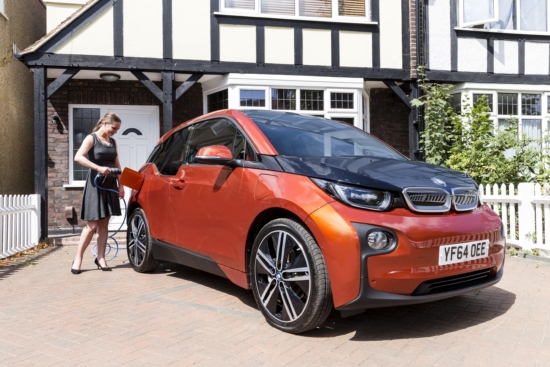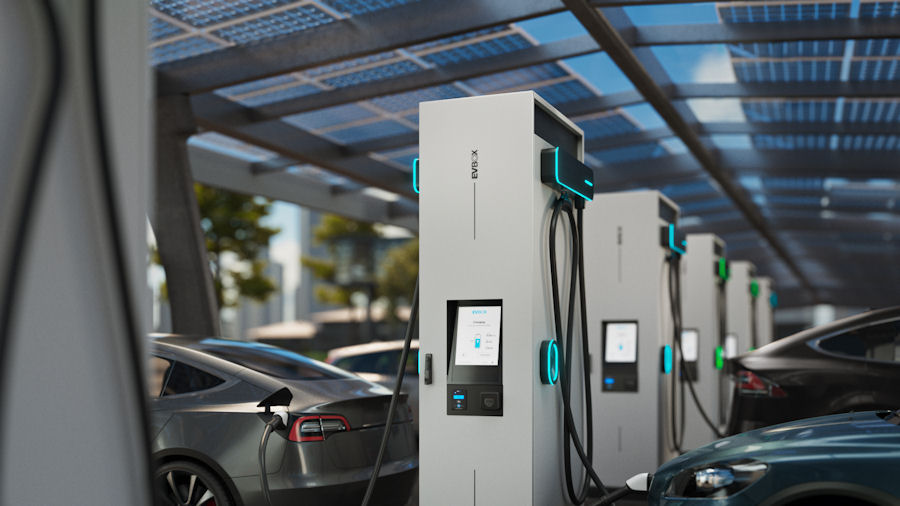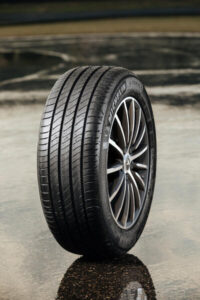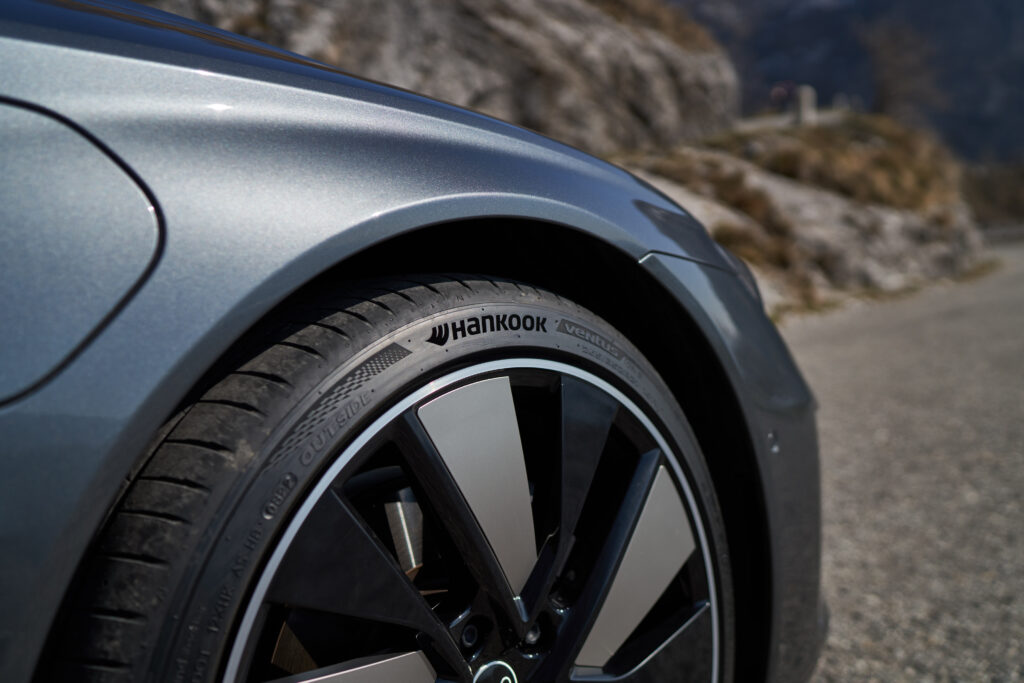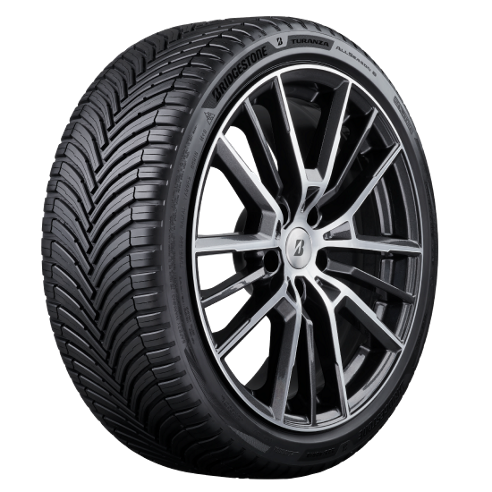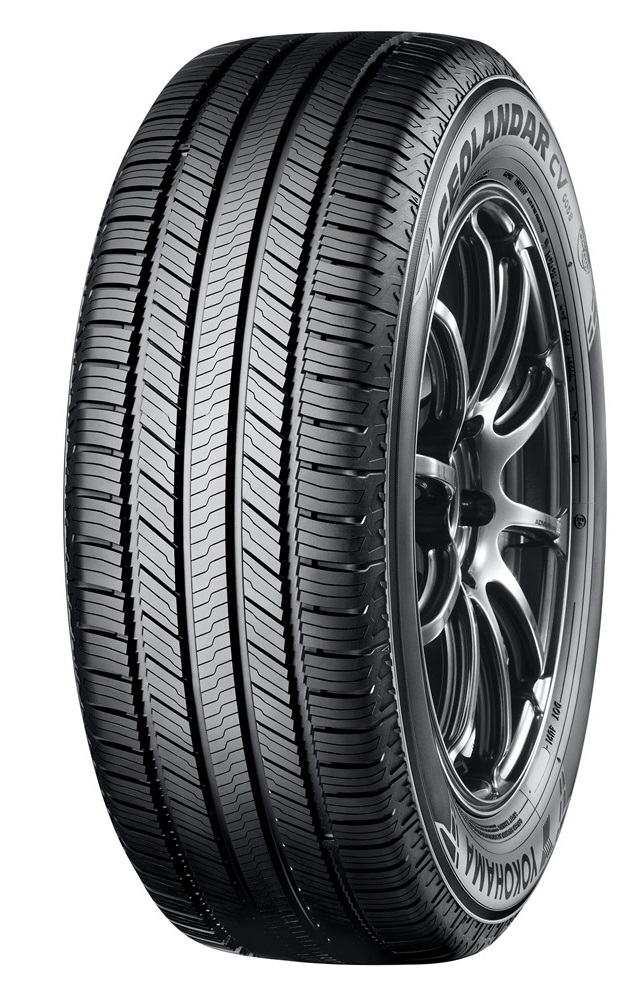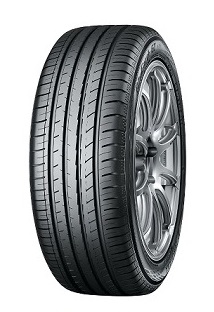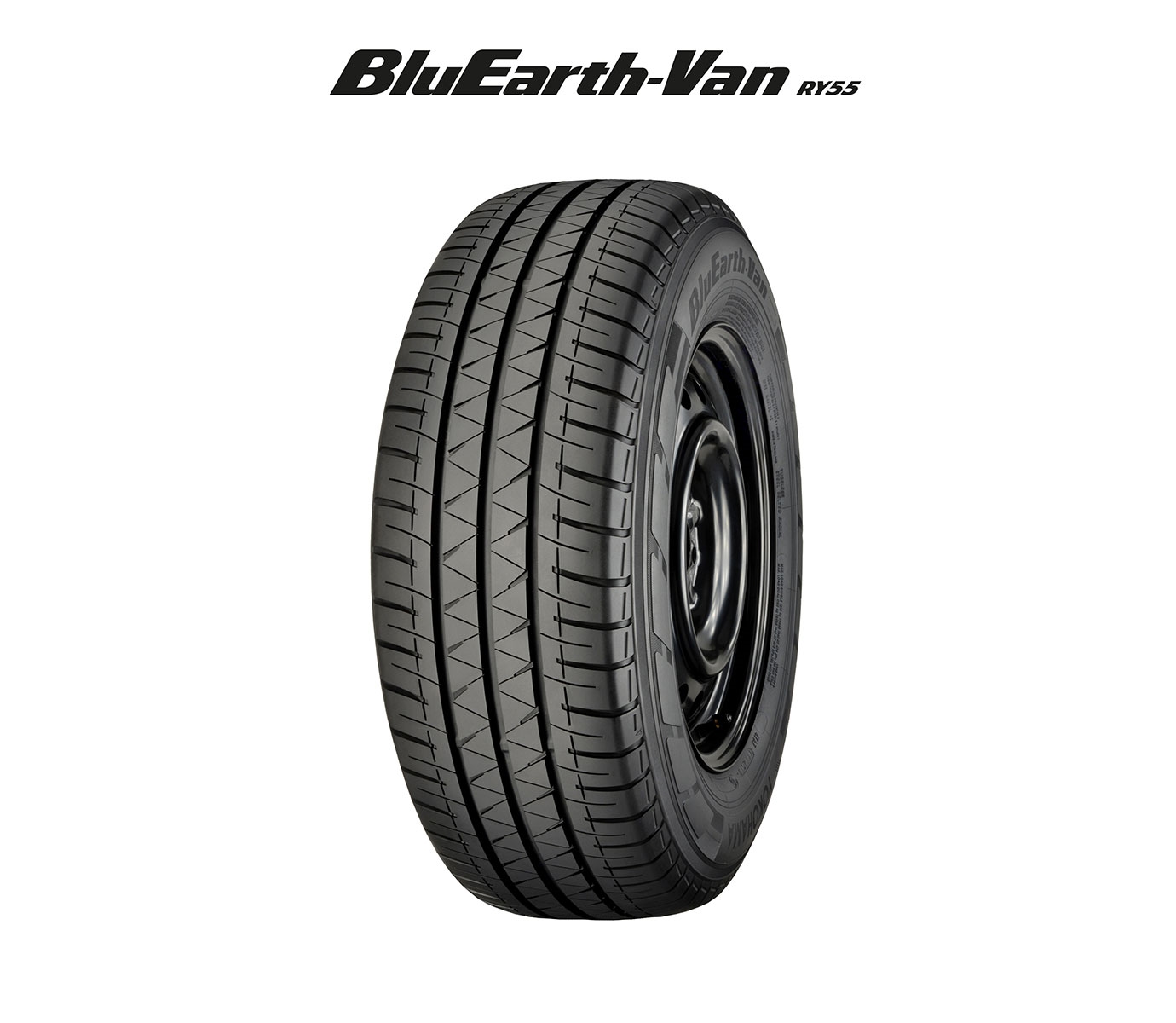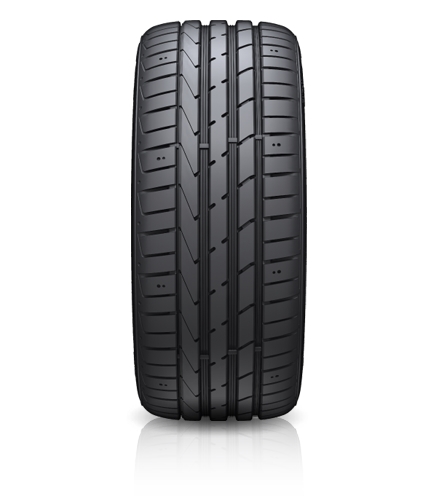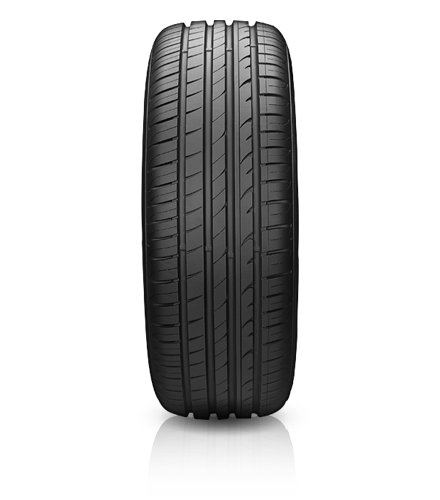 The next few years will see an explosion in the replacement tyre fitment options available to electric car drivers. Sales of electric cars (EVs) in the UK and Europe are set to continue to accelerate up to deadlines dictating the end of new internal combustion engine-powered (ICE) cars into the next decade. For the replacement tyre market – the tyres bought at garages to replace the tyres originally fitted to the car from new – the effects of this will gradually become more important over the next five years.
The next few years will see an explosion in the replacement tyre fitment options available to electric car drivers. Sales of electric cars (EVs) in the UK and Europe are set to continue to accelerate up to deadlines dictating the end of new internal combustion engine-powered (ICE) cars into the next decade. For the replacement tyre market – the tyres bought at garages to replace the tyres originally fitted to the car from new – the effects of this will gradually become more important over the next five years.
The European (the EU plus the UK) market for tyres fitted to plug-in cars was fewer than 12 million tyres in 2021. The entire car tyre market demand in this region is roughly 450 million tyres per year. Only about a quarter of those 12 million tyres were for the replacement tyre market too. Despite these low numbers, tyres suitable for electric car are a dominant consideration for tyre manufacturers’ research and development departments. This is because the remaining years of this decade are projected to offer stratospheric growth in this segment. By 2025 it is predicted demand will have more than tripled 2021 levels. By the end of the decade, projections suggest more than 80 million tyres will be required for electric cars, around 50 million of which will be for the replacement market.
During 2022, every major global tyre manufacturer has detailed its plans to supply either specialist electric car tyres or car tyres containing technologies appropriate for electric cars; many have launched new product lines, such as Hankook, whose specialist iON brand has been introduced in both a summer (iON evo) and a winter (iON winter) variant; and Continental, whose UltraContact contains a new high-mileage tread compound and a more robust construction to handle the extra weight and torque of EVs. These two examples demonstrate the major EV tyre development philosophies; tyres are either made specifically for fitment on EVs or with technologies that make the tyres particularly suited to the demands of EVs.
Should you buy specific EV tyres for your electric car?
Some evidence shows UK drivers are not very aware of the existence of specialist electric car tyres. When Apollo Tyres, which also owns the Vredestein tyre brand, asked 1,000 UK motorists about EV tyres this year, only 18% were aware that it is possible to buy them. However, when they were made aware of their existence, 54% said they would prefer to fit a tyre specifically developed for EV fitment.
Not-for-profit road safety organisation TyreSafe advises that motorists should be more aware of the requirements an EV has for its tyres versus a standard ICE car. It said drivers of EVs should “pay close attention to the tyres they choose when the originals need replacing” because “increasingly, the tyres fitted are specifically designed for use on EVs and can be significantly different to the ‘normal’ tyres…”. Specifically, TyreSafe is warning EV owners that fitting the wrong type of tyre could result in “loss of range, extra noise, accelerated wear and the risk of failing while being driven, which could result in a serious incident.”
EV tyres, or tyres equipped with technologies designed with EVs in mind, are designed to address some key characteristics of plug-in vehicles, as well as the needs of their drivers. EVs typically weigh more, generate higher torque from standstill and deliver greater straight-line acceleration. This means they place higher load on the tyre. Since EVs create little noise from their zero-emissions powertrain, tyres become a more important source of noise. EV owners value driving range between charges, meaning the tyres need to support efficient motoring via lower rolling resistance.
Whatever tyres drivers choose to fit to their EV, being aware of the performance qualities of tyres has never been more important. Fitting an ill-suited tyre can severely reduce the life of the product and reduce the effectiveness of an EV.
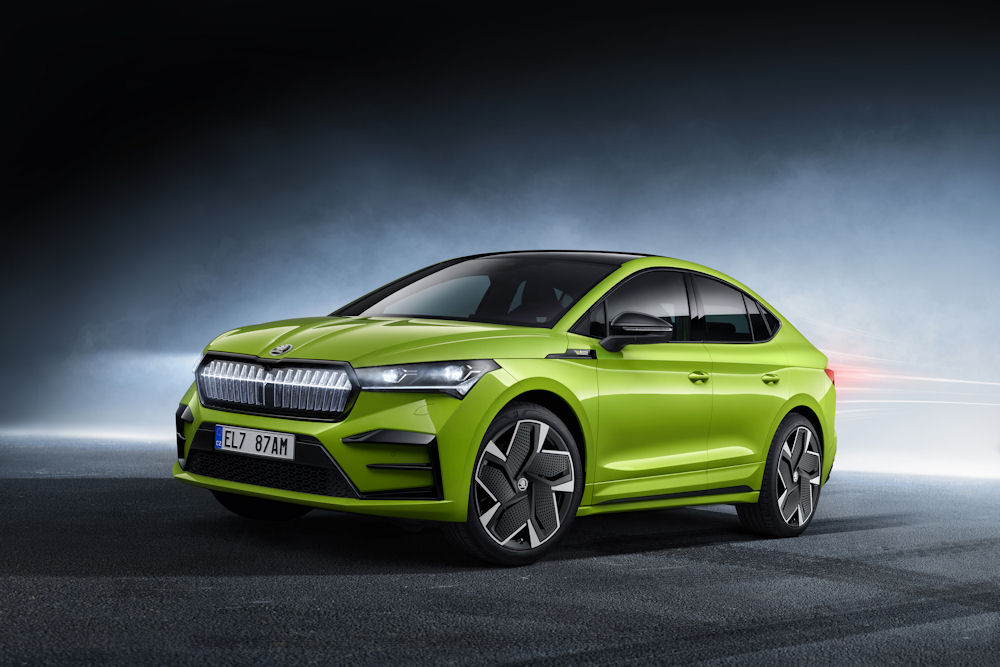
Bridgestone Turanza Eco is winning deals to supply a wide variety of new EVs, including the Skoda Enyaq (Photo: Bridgestone)
How to select a good EV tyre
Main dealers of electric cars often recommend strongly that drivers return to fit the original tyre again when replacements are required. The advantage of this approach is that you get a tyre that has been tested thoroughly for your car and has been approved according to the manufacturer’s standards. However, there are several negatives to balance this advantage. Buying tyres this way can often be very costly. Also, EV tyre technology is developing very rapidly, with new products coming into the market quickly. By researching EV tyres yourself, there are significant cost savings available, you can access the latest advances, and you can make a more informed choice, whether you choose to fit the same tyre again or not.ele
Independent magazine testing of electric car tyres is sparse so far, largely limited to a few isolated comments. But there are a few ways you can identify tyres worth considering. The tyre label remains a good starting point, with the fuel efficiency rating particularly giving you some insight into how well the tyre will support your EV’s range between charges. WhatTyre suggests a rating of at least a B on the tyre label. You should also pay attention to how the manufacturers describe the tyres themselves. The inaugural 2021 WhatTyre Electric Car Tyre of the Year, the Bridgestone Turanza Eco, contains technologies developed in line with the demands of electric cars, though it is not only a specialist EV tyre. Some tyre manufacturers use suffixes like EV or HL (standing for High Load) added to their conventional product names, which indicate that the tyre is suited to EVs. EV tyres often – but not always – have larger dimensions than conventional ICE tyres for similarly sized cars, so EV drivers will find their choices limited in any case. Naturally, we recommend using WhatTyre’s comprehensive, full-market tyre search facility to check how the options available in your car’s tyre size stack up.
Choosing the 2022 recommended tyres
Our Electric Car Tyre of the Year 2022 was identified using more stringent criteria than in our first edition awards. We looked at typical tyre sizes on the top-selling electric cars of 2021, the Tesla Model 3, the Kia e-Niro, the VW ID.3 and the Nissan Leaf to generate a shortlist, with only tyres rated for high loads qualifying. We demanded A-grade fuel efficiency, B or above wet grip, and one or two soundwaves on the tyre label.
We then looked at which tyres have had their performance verified by independent tests and noted their Tyrescores, according to our most recent 2.1 “Bentley” algorithm, which now includes a consideration of the environmental, social and corporate governance (ESG) responsibility of their manufacturer, according to independent accreditation – the sustainability of EV tyres should be considered particularly important in this segment, as EV owners often cite this as a key reason for their purchase decision.
For 2022, WhatTyre also introduced an Eco Tyre of the Year Award. As a result, the Electric Car Tyre of the Year in this and future years will focus on tyres designed and developed primarily for electric cars. In the current market, there are plenty of tyres that have EV-applicable technologies, and many of them are worth considering. In judging tyres for this award, WhatTyre made the decision to reward products that are able to demonstrate EV specialisation. Readers may want to consider fitting certain tyres in the Eco Tyre of the Year category, though there will be many brand-new products on the market by the time the 2023 WhatTyre Awards are judged.
Finally, we needed the tyre to be available in the UK market in a broad range of sizes during the first quarter of 2022. This ruled out many emerging new products, as they are being rolled out through this year and early 2023.
WhatTyre Electric Car Tyre of the Year 2022
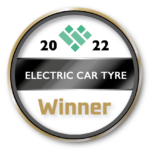 After going through our stringent processes, the Michelin e.Primacy came out on top this year. As well as meeting all our criteria in at least some of its size variations, the tyre is the first current-generation specialist electric vehicle tyre to achieve widespread availability in a broad range of sizes in the UK.
After going through our stringent processes, the Michelin e.Primacy came out on top this year. As well as meeting all our criteria in at least some of its size variations, the tyre is the first current-generation specialist electric vehicle tyre to achieve widespread availability in a broad range of sizes in the UK.
Identified as one to watch in 2021, the Michelin e.Primacy entered the market in 56 dimensions for 15- to 20-inch rim diameters, covering most key EV sizes. In 2022, this was extended to 88 sizes. Michelin has a history of innovation in tyres for electric vehicles, with the Energy Saver range, which was by the e.Primacy, and the electric car specialist Energy E-V. It was the first tyre to be released with an Environmental Product Declaration.
Rated A for fuel (energy) efficiency and B for wet grip on the tyre label, a pairing achieved by less than one per cent of all summer car tyres sold in Europe, the e.Primacy promises the lowest rolling resistance in its class. Michelin thinks it can increase EV range by up to seven percent. Using its Long Lasting Performance concept, Michelin adds that the tyre can pass the European R117 standard wet braking approval test for new tyres even after the equivalent of 30,000km. Lastly, the tyre is the only eco model on our longlist to achieve a one soundwave noise rating – at 69dB it is much quieter than the other two eco/EV tyres.
Two Highly Recommended tyres
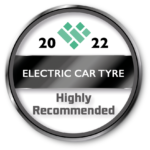 Last year’s winner of this category, the Bridgestone Turanza Eco remains Highly Recommended for electric cars in 2022. The tyre is the first to use Bridgestone’s low rolling resistance, reduced materials technology, Enliten. It has several original equipment fitments on electric cars, like VW’s ID.3. The tyre helps to conserve battery by reducing tyres’ weight by up to 20% against equivalent ICE vehicle tyres, meaning they use up to 2kg fewer raw material resources to produce. It also offers A-rated fuel economy and wet grip. Its noise rating is average, representing a slight compromise, but it remains a very good option for EV drivers.
Last year’s winner of this category, the Bridgestone Turanza Eco remains Highly Recommended for electric cars in 2022. The tyre is the first to use Bridgestone’s low rolling resistance, reduced materials technology, Enliten. It has several original equipment fitments on electric cars, like VW’s ID.3. The tyre helps to conserve battery by reducing tyres’ weight by up to 20% against equivalent ICE vehicle tyres, meaning they use up to 2kg fewer raw material resources to produce. It also offers A-rated fuel economy and wet grip. Its noise rating is average, representing a slight compromise, but it remains a very good option for EV drivers.
While the manufacturer is making the jump into the specialist EV tyre market with its iON range in 2022, Hankook has previously added variations on its conventional tyre range equipped with technologies developed for EV tyres, using the EV suffix on relevant model variations. Its Ventus S1 Evo 3 K127 EV met the 2022 criteria as an excellent performance tyre option. While this version of the tyre is tuned to electric vehicles, ensuring powerful acceleration while minimising road noise, maximising comfort and providing a superior eco-friendly driving experience, it also offers sporty performance characteristics.
Commended tyres
 Like the Bridgestone Turanza Eco, Conti’s EcoContact 6 is a tyre also meets all our demanding criteria for this segment and demonstrates particularly strong fuel economy characteristics. It can offer up to 20% better mileage and 15% lower rolling resistance compared to the predecessor tyre. Thanks to Conti’s Green Chili 2.0 compound, the tyre also improves its driving performance, with more precise handling and shorter braking distances. The tyre is a favourite of small to medium-sized car manufacturers, with approvals from a dozen European vehicle manufacturers.
Like the Bridgestone Turanza Eco, Conti’s EcoContact 6 is a tyre also meets all our demanding criteria for this segment and demonstrates particularly strong fuel economy characteristics. It can offer up to 20% better mileage and 15% lower rolling resistance compared to the predecessor tyre. Thanks to Conti’s Green Chili 2.0 compound, the tyre also improves its driving performance, with more precise handling and shorter braking distances. The tyre is a favourite of small to medium-sized car manufacturers, with approvals from a dozen European vehicle manufacturers.
Away from the premium tyre segment are two more options that are worth a look from lower-cost brands. The GitiSynergyH2 is unfortunately available in very few sizes in the UK, as Giti Tire focuses on its GT Radial brand here. The tyre has exemplary label ratings, including very low noise, while it also achieved a very notable result in independent tyre testing. The SynergyH2 was the only sub-premium brand model to achieve ADAC’s “good” rating in its early 2022 test, assessed against sixteen other patterns in size 185/65R15 88H. It was praised for its all-round performance and given ‘Highly Recommended’ ratings by the Swiss TCS and Austrian OAMTC automobile clubs.
The Falken Azenis FK510 is the brand’s best-selling tyre and has been regularly improved using Sumitomo Rubber Industries’ cutting-edge technologies. The tyre may be in the process of being superseded by the new Azenis FK520, it is commended in our 2022 guide for its outstanding history in tyre tests for a brand often considered just outside the premium segment and recent fitments as original tyres on the fuel-cell powered Toyota Mirai and Fiat’s Tipo Cross hybrid. The size range encompasses many larger dimensions used on electric cars too. Be cautious though; the tyre has many iterations with different load and speed ratings and you should ensure its size has the XL suffix on the sidewall, meaning it is suitable for heavier cars.
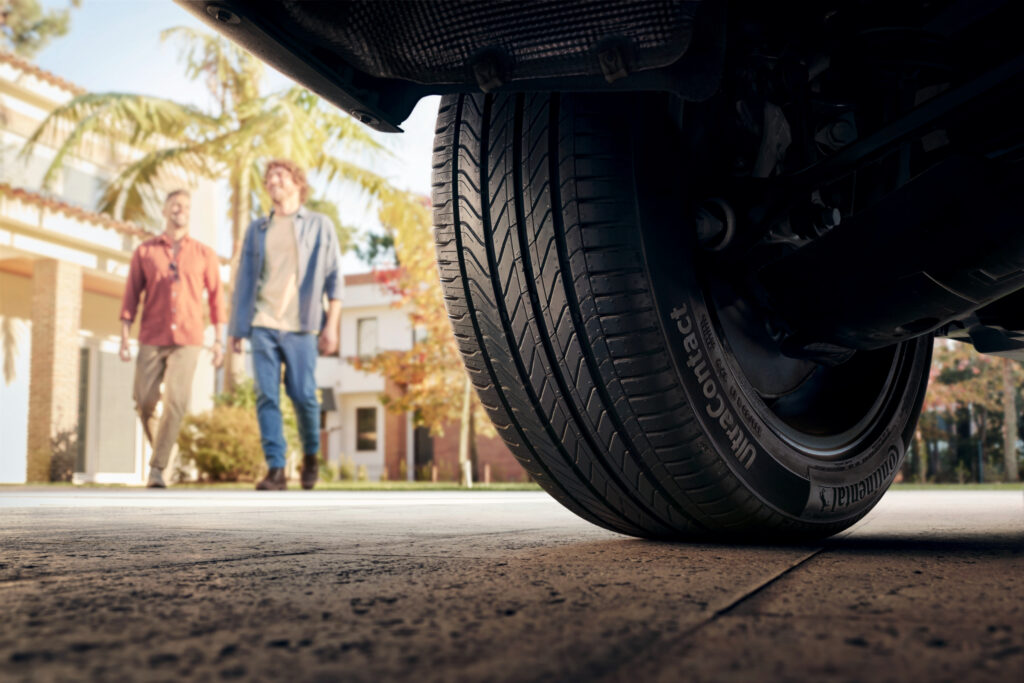
Rolled out in 2022 Continental’s UltraContact is one of many new tyres that will challenge for the top honours in this segment in the coming years (Photo: Continental)
New specialist electric car tyres
There are many new electric car tyres coming out in 2022 and 2023, and it is likely that the award winners next year will be very different to this year’s list. Hankook’s iON evo and winter variants look very promising as new specialist electric car tyres; Vredestein is bringing in a new all-season electric car tyre, while its parent company Apollo launches a range of EV options; Falken will launch the e.Ziex; and some lower-cost brands that have become popular in the UK are getting closer to introducing EV tyres to their European portfolios.
More tyres designed to be used by EVs and ICE cars are also coming: the Continental UltraContact narrowly missed out on being considered for this year’s awards and is already available; Pirelli’s P Zero range is increasingly adding EV variants with the Elect suffix; Kumho is adding EV certified variants of its Ecsta car tyre range; and Nexen is winning original equipment deals with its N’fera Sport EV.
The growing pool of electric vehicle drivers will be spoilt for choice in 2023.

